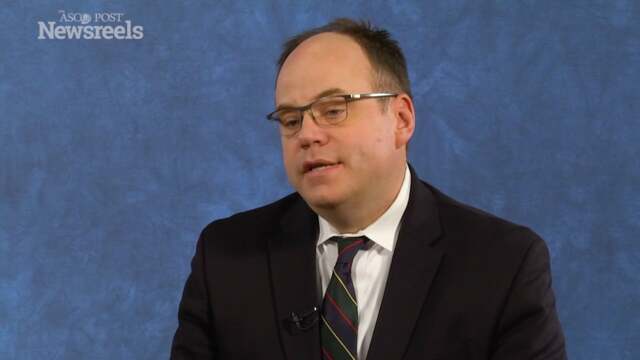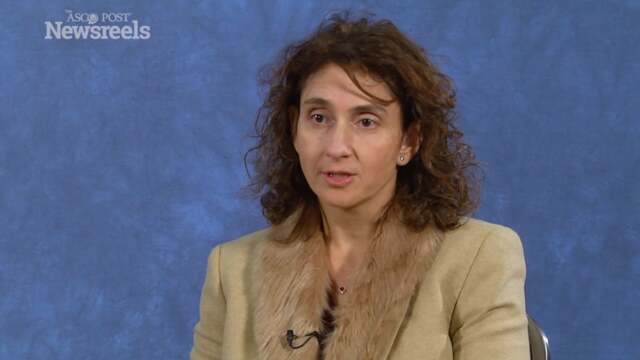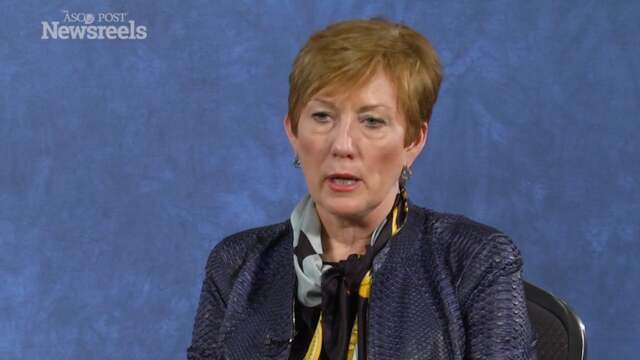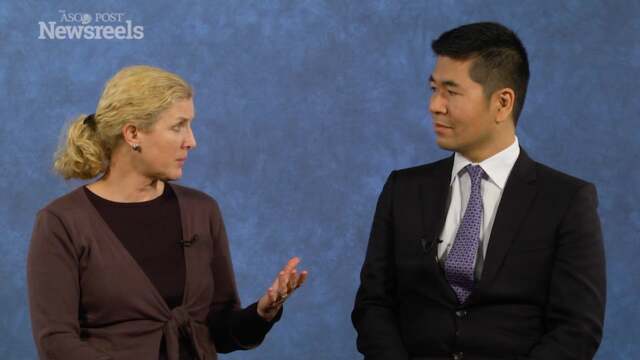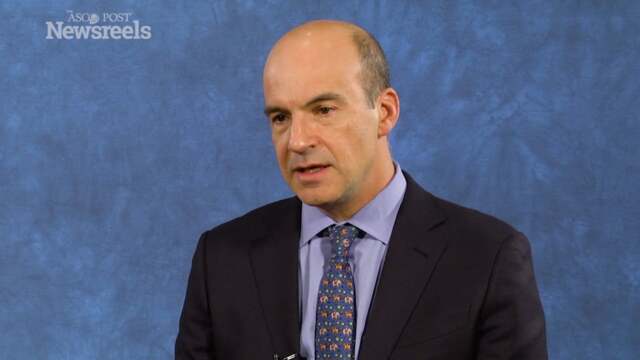Mothaffar Rimawi, MD, on HR-Positive, HER2-Positive Breast Cancer: Results of the NRG Oncology/NSABP B-52 Trial
2016 San Antonio Breast Cancer Symposium
Mothaffar Rimawi, MD, of the Smith Breast Center at Baylor College of Medicine, discusses phase II findings from a study evaluating pathologic complete response in patients with HR-positive, HER2-positive disease treated with neoadjuvant docetaxel, carboplatin, trastuzumab, and pertuzumab with or without estrogen deprivation (Abstract S3-06).
Matthew P. Goetz, MD, of the Mayo Clinic, reviews progress made during the past year on treatment of advanced disease.
Virginia G. Kaklamani, MD, DSc, of The University of Texas Health Science Center, discusses new directions in prevention, early detection, and treatment of early-stage breast cancer, using genomic tests and targeted therapies.
Monica Morrow, MD, of Memorial Sloan Kettering Cancer Center, recognized at this year’s meeting for scientific distinction in clinical research, summarizes her Brinker Award lecture on modifying local therapy to decrease the burden of cancer treatment.
Lisa A. Carey, MD, and Maki Tanioka, MD, both of the University of North Carolina, discuss study findings on weekly paclitaxel and trastuzumab with or without lapatinib for HER2-positive breast cancer (Abstract S3-05).
Peter Bach, MD, of Memorial Sloan Kettering Cancer Center, summarizes his plenary lecture on drug costs and their effect on the affordability of cancer care worldwide (Plenary Lecture 3).
